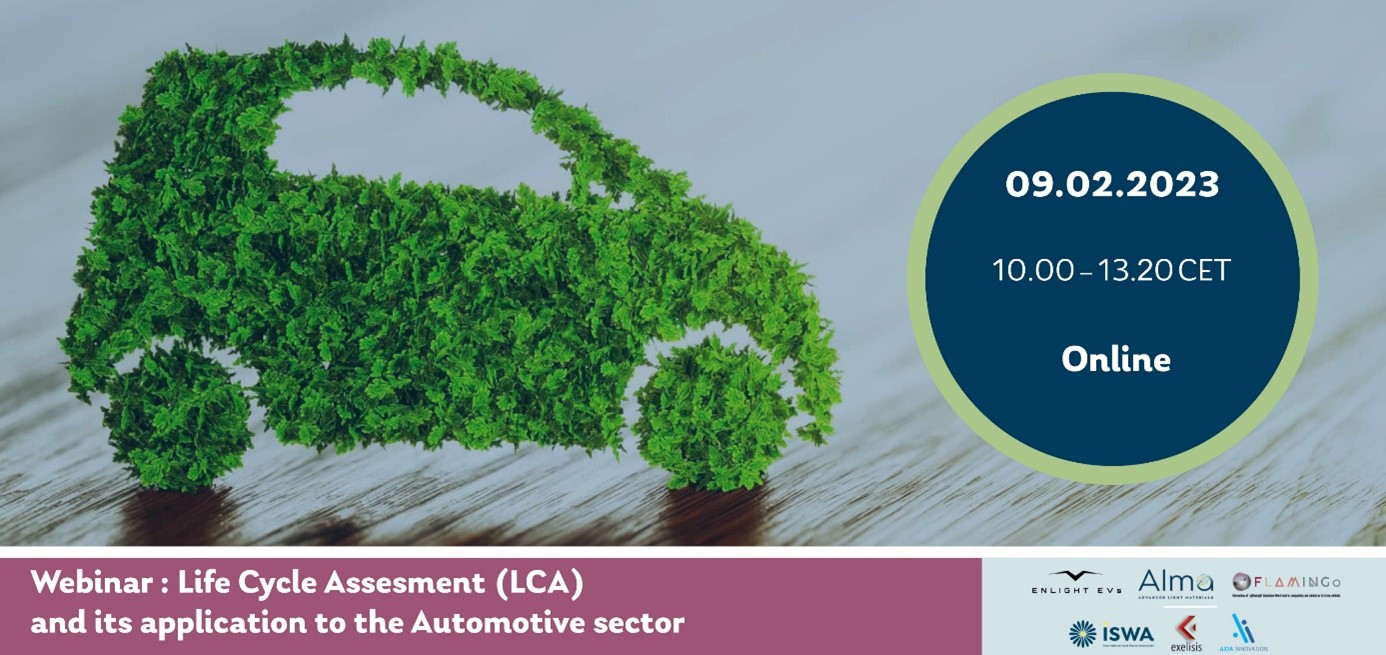The LEVIS project was presented at the online seminar “Life Cycle Assessment and its application to the automotive sector” in February 2023. The workshop was organized by LEVIS’ sister projects ALMA and FLAMINGo.
As the need to make the automotive industry more sustainable increases every day, car manufacturers and suppliers are searching for solutions to further reduce the environmental impact of their products and value chains. To determine this impact during the entire life cycle of a product or service, Life Cycle Assessment (LCA) is used. The web seminar “Life Cycle Assessment and its application to the automotive sector”, organized by H2020 projects ALMA and FLAMINGo, gathered experts to discuss challenges and solutions of implementing automotive LCA in the circular context.
In LEVIS, LCA is applied to quantify and compare the environmental impacts of the proposed LEVIS lightweight vehicle components (suspension system, battery holding set, cross car beam) against their benchmark alternatives. The project aims at a weight reduction of the demonstrators of 20-40%. This should translate into at least a 25% reduction in global warming potential (GWP) at the component level as well as a 7% reduction in GWP at the vehicle level.
LCA models are built for each of the three components taking into consideration all life cycle stages, including the mining of materials, production of the components, transportation and usage of the products and end-of-life processes. The LCA not only considers greenhouse gas emissions, but also emissions such as hazardous or toxic particles and gasses, as well as waste emissions resulting from material extraction.
The initial LCA results from conventional electric vehicles components confirmed the significant influence the material selection has on the overall environmental impact of the EV components and on the relative influence of the production, use, and end-of-life phase. The cross-car beam and the suspension control arm, both made mostly from steel, display similar LCA results. The battery box has a higher environmental impact in the production phase due to the manufacturing and processing of aluminium which produces more GHG emissions per kg than steel.
Moreover, to integrate life cycle thinking and related circular economy principles into the design process of the LEVIS components, Cenex Nederland developed and, together with industrial partners, trialled an Eco-Design toolkit called iEDGE (integrated Eco-Design Guideline and Evaluation).
“The toolkit’s purpose is to better support and guide the decision-making process in the early stages of a product’s design. The toolkit was used by the EV component manufacturers within the LEVIS project and helped the users to identify feasible improvement options in comparison to their respective baselines in multiple life cycle stages.”
– Floris Teunissen, LCA specialist at Cenex Nederland
With this in mind, the LCA models for LEVIS components, are being analysed at the moment. Results will be published by the end of the year.
Besides LEVIS, the projects ALMA, FLAMINGo, FATIGUE4LIGHT, REVOLUTION and SALEMA also presented their LCA approaches and discussed the challenges of LCA and integrating circularity in automotive applications. With over 80 attendees and lively discussions among LCA experts and stakeholders, the workshop was a full success.
Picture Credit: ALMA and FLAMINGo
